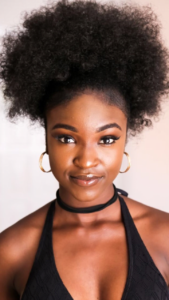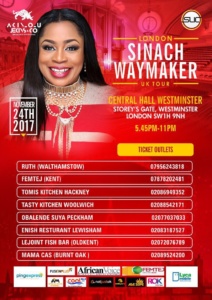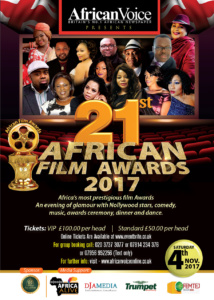By Tolu Baruwa – For decades, the African voice has been suppressed, subdued and silenced. Ultimately rooting from white supremacy dominating in the 19th century – a brute time of slavery – the African population has forcibly felt demoralized as a race.

There is no doubt that due to the oppression of the ‘white privileged’ majority, the black community has been challenged when attempting to express their voices. From the early history where African females would wear their natural kinky curls, this was viewed as ‘unprofessional’ in the working environment, as well as a ‘distraction’.
A reflection of this is apparent through the recent uproar, where popular Disney star, Zendaya, boldly wore her hair in dreadlocks, before a racist comment was made by Giuliana Rancic, describing how it looks like it ‘smells of [weed]’. This controversial comment led to a violent burst on social media, whereby Zendaya responded, “There is a fine line between what is funny and disrespectful”. This aims to demonstrate the attempt of an African female expressing her heritage through her ancestor’s hair-type and her voice being weakened by what appears to be, an ignorant white woman.
As a black female myself, this story is yet revolting as it merely reveals a developing minority being weakened by a strong majority. That, in itself is bullying. Bullying is further evident in police brutality, from names like Trayvon Martin in Florida to Mark Duggan in Tottenham, who were African victims of unnecessary shootings by white authorities. From my perspective, this identifies even a legal control over the Africans, causing a tragic battle between the blacks and the legal system.
However, it appears to be that even within the black community, colourism is a prevalent problem. In a recent video that went viral over social media, a dark-skinned woman was seen to be using the well-known cream, Nivea, to change the pigment of her skin to a lighter colour.
I was disgusted at the message of the advert, explicitly expressing that ‘the lighter one is, the more beautiful they are’. Public figures like ‘Bobrisky’ are also recognized for using bleaching cream to lighten the pigment of their skin, in hope to appear more ‘attractive’, in the white world that we live in. Yet another example is how darker skinned females are treated as opposed to lighter skinned females in movies and shows such as Coming to America and Empire, whereby it subconsciously expresses that the darker one is, the more unattractive traits they have e.g. loud and aggressive. This merely highlights how Africans globally are suffering from a ‘post-traumatic slave syndrome’, whereby we are still conditioned to believing that white supremacy is the correct way.
It fundamentally alludes to the 1800’s whereby white slave owners would give privileges to fairer skinned slaves, whilst the darker slaves were made to brutally work in the heat out on the cotton fields. As a result, I propose that Africans now live in a blind white man’s world; a world where the only colour we are made to see is white.
Despite the enslavement of the white majority in the 20th century, Africans have somewhat been elevated to platforms that would have been difficult without them. We cannot forget the rise of Barack Obama, a Kenyan man, who became the first black president of the United States in 2008. It is important to note that not all of the white populations are white supremacists, and they have certainly had an impact of who we see ourselves as today. Yet as a result of living in a white man’s world, we as Africans, must unite together to continuously express the strong voice within us.
As we enter the special month of October, we mark the 30th anniversary of Black History Month. From this, we can be reminded of African icons such as Martin Luther King and Rosa Parks, that have shaped modern history, giving many Africans the voice that they have today. Prime Minister, Theresa May, expresses her “duty” to “pay tribute” to these African figures that have inspired many over the last 30 years, as well as “shine light” on the injustices that we, as Africans, have faced as a race.
Tolu Baruwa is currently on media internship with African Voice Newspaper UK
Kindly follow us on twitter:@AfricanVoice2












